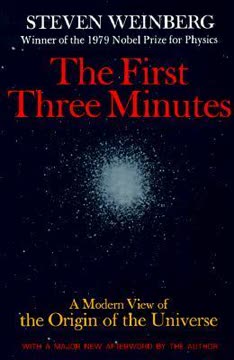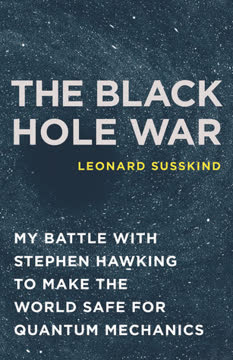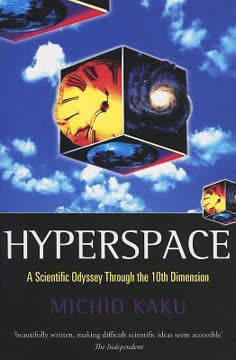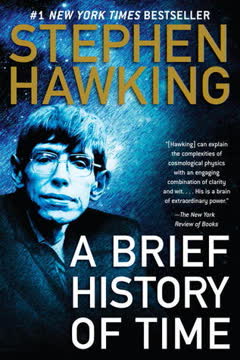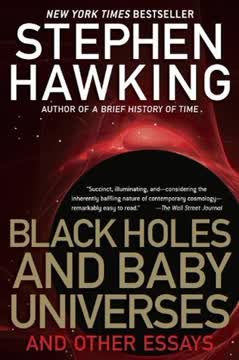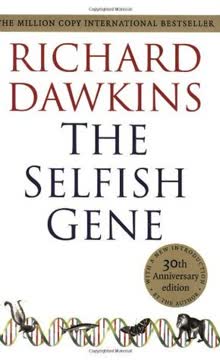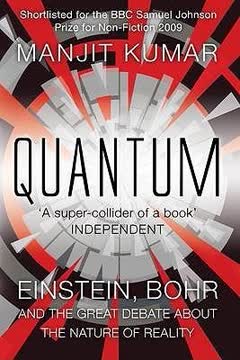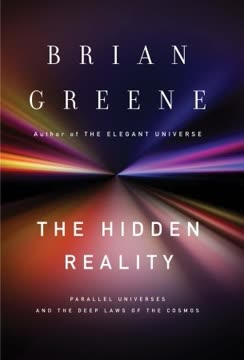重点摘要
1. 宇宙可以从无中产生,挑战传统的创造观念
无总是会产生某种东西,即使只是瞬间。
重新定义“无”: 在量子物理学中,空的空间并不是真正的空。它是一个动态的环境,粒子和反粒子会自发地出现和消失。这挑战了“无中生有”的哲学观念。
无创者的创造: 物理定律允许物质、能量,甚至时空的自发创造。这不需要外部力量或神灵的干预,而是量子力学和广义相对论的自然结果。
- 虚粒子可以从量子真空中冒出来
- 封闭宇宙的总能量可以为零,从而允许其自发产生
- 膨胀理论解释了一个微小的量子波动如何扩展成我们可观测的宇宙
2. 量子波动和膨胀解释了我们宇宙的起源和结构
量子波动,本来完全不可见,通过膨胀被冻结,随后作为密度波动出现,产生了我们所能看到的一切!
宇宙膨胀: 膨胀理论提出,早期宇宙经历了一段由空能量驱动的指数膨胀期。这解决了几个宇宙学难题,包括可观测宇宙的平坦性和均匀性。
结构的种子: 膨胀期间的量子波动成为所有宇宙结构的种子。这些微观的能量密度变化被拉伸到宇宙尺度,最终导致星系、恒星和行星的形成。
- 膨胀解释了为什么宇宙在大尺度上看起来是平坦和均匀的
- 宇宙微波背景辐射提供了这些原始波动的证据
- 该理论将量子世界与宇宙大尺度结构联系起来
3. 暗能量主导宇宙,加速其膨胀
我们生活在一个非常特殊的时代……唯一能通过观测验证我们生活在一个非常特殊的时代的时代!
意外发现: 1990年代末对遥远超新星的观测揭示了宇宙的膨胀在加速。这导致了暗能量的发现,这是一种在宇宙尺度上对抗引力的神秘力量。
宇宙成分: 暗能量占宇宙能量含量的约70%,暗物质占另一个25%。普通物质——我们能看到和触摸到的东西——只占宇宙的不到5%。
- 暗能量的本质仍然是物理学中最大的谜团之一
- 它的发现从根本上改变了我们对宇宙过去和未来的理解
- 爱因斯坦提出并随后放弃的宇宙常数可能解释了暗能量
4. 由于加速膨胀,可观测宇宙将在未来消失
虚无正朝我们迎面而来!
宇宙视界: 随着宇宙以加速的速度膨胀,遥远的星系最终将相对于我们以超过光速的速度后退。这将导致它们从我们的视野中消失,使我们的可观测宇宙越来越空。
宇宙学的终结: 在遥远的未来,天文学家将无法观测到大爆炸或宇宙膨胀的证据。宇宙微波背景辐射将变得太微弱而无法检测,所有在我们本地群体之外的星系将消失在宇宙视界之外。
- 大约在2万亿年后,目前可观测的宇宙大部分将变得不可观测
- 未来的文明可能会形成一个静态、永恒宇宙的错误图景
- 这突显了我们当前时代在宇宙发现中的特殊性
5. 多重宇宙可能存在,每个宇宙有不同的物理定律
我们的宇宙就像埋在广阔多重宇宙海洋中的一滴泪。
多重宇宙假说: 现代物理学中的各种理论,包括弦理论和永恒膨胀,暗示了多重宇宙的存在。每个“多重宇宙”中的宇宙可能有不同的基本常数和物理定律。
微调的影响: 我们宇宙对生命的显然微调可能通过大量宇宙的存在来解释。在这种情况下,我们自然会发现自己处于一个与我们的存在相兼容的宇宙中,而无数其他宇宙则不适合生命。
- 弦理论提出了一个广阔的“景观”可能的宇宙
- 永恒膨胀提出新的宇宙不断被创造
- 多重宇宙概念挑战了独特、目的性设计的宇宙观念
6. 人择原理表明我们宇宙的属性既不独特也不必要
如果我们都是星尘,正如我所写的,如果膨胀发生了,那么我们也确实是从量子虚无中诞生的。
选择效应: 人择原理认为,我们观察到的宇宙属性受到像我们这样的观察者存在的要求的限制。这并不能解释为什么宇宙是这样的,但它确实限制了我们可能观察到的属性范围。
环境科学: 在多重宇宙情景中,许多自然的基本常数可能是环境偶然事件,而不是必要特征。这将重点从解释这些常数为何具有特定值转移到理解这些值在多重宇宙中的概率分布。
- 物理常数对生命的微调可能是一个观察选择效应
- 这一原理并不证明多重宇宙的存在,但提供了理解我们在其中位置的框架
- 它挑战了宇宙是专门为人类存在而设计的观念
7. 科学,而非哲学或神学,提供了关于我们存在的最佳答案
这个问题的最终裁决者不会来自希望、欲望、启示或纯粹的思考。如果它真的到来,将来自对自然的探索。
经验方法: 尽管关于存在本质的哲学和神学争论已经持续了数千年,科学探究在理解宇宙方面取得了显著进展。这一进展基于观测证据和可测试的理论。
直觉的局限: 我们关于现实本质的常识观念常常被科学发现所否定。量子世界和时空的本质挑战了我们的日常经验,要求我们更新对“某物”和“无”的概念。
- 科学在短短一个世纪内彻底改变了我们对宇宙的理解
- 哲学论点往往依赖于过时或错误的自然假设
- 科学方法继续推动人类知识的边界
8. 宇宙的未来可能是回归虚无
“为什么有某物而不是无?”的答案将简单地是:“不会有太久。”
宇宙循环: 一些理论认为,我们的宇宙可能最终回归到“虚无”状态。这可能通过物质的衰变、暗能量的主导或向不同真空状态的过渡来实现。
暂时存在: “某物”的存在可能是更大宇宙循环中的一个暂时状态。这挑战了当前宇宙状态是特殊或永久的隐含假设。
- 质子衰变和宇宙的热寂可能导致最大熵状态
- 一些弦理论模型提出我们的宇宙是不稳定的,最终会崩溃
- 我们宇宙的短暂性强调了我们当前存在的珍贵性
最后更新日期:
FAQ
What's "A Universe from Nothing" about?
- Exploration of Cosmology: The book delves into the current state of cosmology, exploring the origins and future of the universe.
- Concept of Nothingness: It examines the idea that the universe could arise from "nothing," challenging traditional philosophical and theological views.
- Scientific Advances: Krauss discusses groundbreaking scientific advances that have reshaped our understanding of the universe's beginnings.
- Interdisciplinary Approach: The book bridges the gap between science and popular culture, making complex ideas accessible to a broader audience.
Why should I read "A Universe from Nothing"?
- Understanding Cosmology: It provides a comprehensive introduction to modern cosmology and the scientific principles that govern the universe.
- Challenging Perspectives: The book challenges traditional notions of creation and existence, offering a scientific perspective on these age-old questions.
- Engaging Writing: Krauss's writing is known for its clarity and wit, making complex scientific concepts engaging and understandable.
- Cultural Relevance: The book addresses the intersection of science, philosophy, and religion, making it relevant to contemporary debates on these topics.
What are the key takeaways of "A Universe from Nothing"?
- Universe from Nothing: The universe can arise from nothing due to the laws of physics, particularly quantum mechanics and general relativity.
- Role of Dark Energy: Dark energy plays a crucial role in the universe's expansion and its eventual fate.
- Flat Universe: Observations suggest that the universe is flat, which has significant implications for its origin and evolution.
- Scientific Inquiry: The book emphasizes the importance of scientific inquiry and evidence-based understanding of the universe.
How does Lawrence Krauss explain the concept of "nothing" in the book?
- Quantum Fluctuations: Krauss explains that quantum fluctuations allow particles to appear and disappear, suggesting that "nothing" is unstable.
- Empty Space: He describes empty space as a dynamic entity with energy, challenging the traditional notion of "nothing."
- Cosmological Constant: The book discusses how the cosmological constant represents energy in empty space, contributing to the universe's expansion.
- Scientific Perspective: Krauss uses scientific principles to redefine "nothing," moving away from philosophical and theological definitions.
What is the significance of dark energy in "A Universe from Nothing"?
- Dominant Force: Dark energy is the dominant force driving the accelerated expansion of the universe.
- Cosmological Constant: It is often associated with the cosmological constant, a concept introduced by Einstein.
- Implications for the Universe: Dark energy's presence suggests that the universe will continue to expand, leading to a cold, dark future.
- Scientific Mystery: Despite its significance, dark energy remains one of the biggest mysteries in cosmology, with its nature and origin still largely unknown.
How does Krauss address the question of "something from nothing"?
- Scientific Explanation: Krauss argues that the universe can arise from nothing due to the laws of physics, particularly quantum mechanics.
- Inflation Theory: The book discusses how inflation theory explains the rapid expansion of the universe from a small, dense state.
- Quantum Mechanics: Quantum fluctuations allow for the spontaneous creation of particles, suggesting that "nothing" is inherently unstable.
- Challenging Traditional Views: Krauss challenges the philosophical and theological notion that creation requires a creator.
What role does the concept of a flat universe play in the book?
- Observational Evidence: Krauss presents evidence that the universe is flat, which has significant implications for its origin and evolution.
- Inflation Theory: A flat universe is consistent with the predictions of inflation theory, which describes the rapid expansion of the early universe.
- Energy Balance: In a flat universe, the total gravitational energy is zero, supporting the idea that the universe could arise from nothing.
- Scientific Consensus: The flatness of the universe is a key piece of evidence supporting the current cosmological model.
What are the best quotes from "A Universe from Nothing" and what do they mean?
- "Forget Jesus, the stars died so you could be born." This quote emphasizes the scientific perspective that our existence is a result of natural processes, not divine intervention.
- "The universe is the way it is, whether we like it or not." Krauss highlights the importance of accepting scientific evidence, even if it challenges our beliefs.
- "Nothing is not nothing. Nothing is something." This quote encapsulates the book's central theme that "nothing" is a dynamic and complex concept in physics.
- "We live at a very special time... the only time when we can observationally verify that we live at a very special time!" Krauss underscores the unique opportunity we have to study the universe's expansion and understand its origins.
How does Krauss use scientific principles to challenge traditional philosophical and theological views?
- Redefining Nothing: Krauss uses quantum mechanics and general relativity to redefine "nothing," moving away from traditional philosophical definitions.
- Evidence-Based Arguments: The book emphasizes the importance of evidence-based understanding, challenging the need for a creator in explaining the universe's origin.
- Scientific Inquiry: Krauss advocates for scientific inquiry as the best method for understanding the universe, rather than relying on philosophical or theological speculation.
- Interdisciplinary Approach: By bridging science and popular culture, Krauss makes complex scientific ideas accessible, encouraging readers to question traditional beliefs.
What is the role of quantum mechanics in "A Universe from Nothing"?
- Quantum Fluctuations: Quantum mechanics allows for the spontaneous creation of particles, suggesting that "nothing" is inherently unstable.
- Virtual Particles: The book discusses how virtual particles can appear and disappear in empty space, challenging traditional notions of "nothing."
- Inflation Theory: Quantum mechanics plays a crucial role in inflation theory, which describes the rapid expansion of the early universe.
- Scientific Explanation: Krauss uses quantum mechanics to provide a scientific explanation for the universe's origin, challenging philosophical and theological views.
How does "A Universe from Nothing" address the future of the universe?
- Dark Energy's Role: The book discusses how dark energy will continue to drive the universe's expansion, leading to a cold, dark future.
- Disappearance of Evidence: Krauss explains that in the distant future, evidence of the Big Bang and the universe's expansion will disappear, making it difficult for future civilizations to understand the universe's origins.
- Bleak Outlook: The book presents a bleak outlook for the universe's future, with galaxies receding beyond the observable horizon and stars eventually burning out.
- Scientific Perspective: Despite the bleak future, Krauss emphasizes the importance of understanding the universe's evolution through scientific inquiry.
What is the significance of the multiverse concept in "A Universe from Nothing"?
- Multiple Universes: The multiverse concept suggests that our universe is one of many, each with different physical laws and constants.
- Anthropic Principle: Krauss discusses how the multiverse concept supports the anthropic principle, which explains why our universe is suitable for life.
- Challenging Uniqueness: The multiverse challenges the idea that our universe is unique, suggesting that its properties may be the result of chance.
- Scientific Exploration: The book explores the multiverse as a scientific concept, encouraging readers to consider the broader implications for our understanding of the universe.
评论
《从无到有的宇宙》提出了关于宇宙学和宇宙起源的迷人观点,解释了如何从无中产生有。评论者称赞克劳斯通俗易懂的写作风格和对复杂概念的生动解释。许多人认为这本书发人深省,尽管有些人批评其反宗教立场和偶尔的表达不清。读者们欣赏书中关于最新科学发现和理论的内容,但有些人对较为技术性的部分感到困难。总体而言,尽管存在一些不足,这本书被认为是对现代宇宙学的一个信息丰富且引人入胜的探索。
Similar Books
